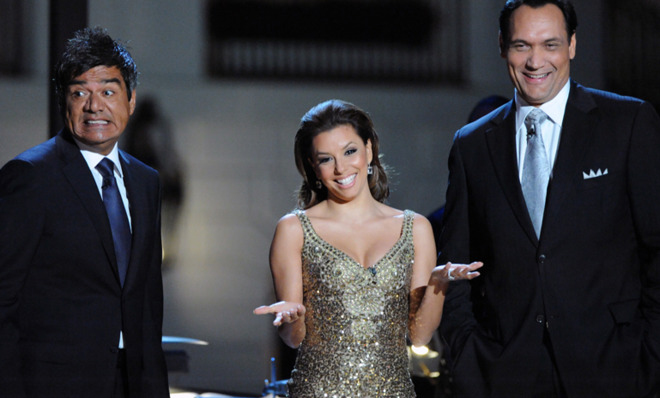Why 'female friendly' restaurants are making women unhappy
The trend is sexist and insulting — and it could also be bad for business

A free daily email with the biggest news stories of the day – and the best features from TheWeek.com
You are now subscribed
Your newsletter sign-up was successful
A few years ago, Desperate Housewives star Eva Longoria opened a steakhouse for women, aptly named SHe. In a press release, Longoria said the restaurant would "create a feeling of empowerment" for women and challenge the notion that steakhouses are a place for men.
But when SHe opened its doors on New Year's Eve 2012, all that talk of empowerment boiled down to smaller, "she-sized" steak portions, mirrors on the dessert menus so women could reapply their lipstick, and "sexy" décor. And let's not forget SHe's main attraction: a catwalk where women in scanty clothing perform for the restaurant's female and male guests.
SHe isn't the only restaurant that has drawn criticism for invoking gender stereotypes under the guise of being "female friendly." The international steakhouse chain STK received backlash after posting a female-friendly promotional video that featured sexist images of stilettoed women feeding each other steak. A pink sports bar in New York's Union Square hit every feminist's nerve when owner Ken Sturm told DNAinfo, "We did a softer design [because] we wanted to make it very inviting for women so that they don't feel like they're sitting a men's kind of club."
The Week
Escape your echo chamber. Get the facts behind the news, plus analysis from multiple perspectives.

Sign up for The Week's Free Newsletters
From our morning news briefing to a weekly Good News Newsletter, get the best of The Week delivered directly to your inbox.
From our morning news briefing to a weekly Good News Newsletter, get the best of The Week delivered directly to your inbox.
Last year, when The Bachelorette's Chris Bukowski opened the Bracket Room, a female-friendly sports bar in Arlington, Va., Washington City Paper reporter Jessica Sidman chided the bar and other similar restaurants, writing, "[S]mall plates and sexy décor? If this is what these restaurants believe women want, their target audience should be insulted."
"Female friendly" may be just a trivial restaurant trend, but at the heart of these criticisms are deep-rooted concerns about how women are viewed and treated.
As more women have come forward questioning the trend on blogs and in articles, restaurants have been less vocal about promoting themselves as female-friendly. When STK — which once touted itself as the premiere female-friendly steakhouse — opened another venue in Washington D.C.'s Dupont Circle in late April, the press release made no mention of the steakhouse being female-friendly, according to the dining blog Eater DC. There's no telling if STK's decision is in direct response to the criticism, but when I asked public relations manager Krystal Yoseph why the company made the choice, she said, "We're moving away from the female-friendly concept."
The debate over female-friendly restaurants has left at least one question unanswered: What do women want in a bar or restaurant? While critics haven't spelled out how establishments could serve women better, their response to the female-friendly trend gives some insight into what changes could be made. Women want to eat and drink in places where their safety is valued and their minds and bodies are respected.
A free daily email with the biggest news stories of the day – and the best features from TheWeek.com
This feedback is nothing to brush off, considering that, in the United States, women are the ones holding the wallet. She-conomy, a financial blog that calls itself "the guy's guide to marketing to women," reports that 85 percent of purchases are made by women, but that 91 percent of women feel that advertisers don't understand them.
Companies will come under increasing pressure to better understand what women are looking for, especially since women will have even more financial power in the coming years. Last year, Nielsen published a study showing that women control as much as $15 trillion of consumer and business spending. Over the next decade, they will hold over two thirds of consumer wealth.
In a time when women have tremendous buying power, many businesses will need to shift their old ways of thinking. It may be time to redefine "female friendly."
-
 The 8 best TV shows of the 1960s
The 8 best TV shows of the 1960sThe standout shows of this decade take viewers from outer space to the Wild West
-
 Microdramas are booming
Microdramas are boomingUnder the radar Scroll to watch a whole movie
-
 The Olympic timekeepers keeping the Games on track
The Olympic timekeepers keeping the Games on trackUnder the Radar Swiss watchmaking giant Omega has been at the finish line of every Olympic Games for nearly 100 years